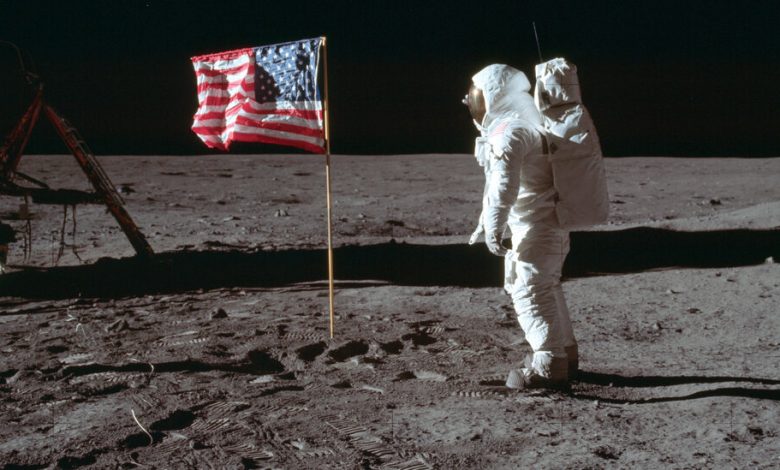Will a Movie Faking the Moon Landing Propel a Debunked Conspiracy Theory?

The new Scarlett Johansson-Channing Tatum vehicle “Fly Me to the Moon” uses a long-debunked conspiracy theory as the jumping-off point for a space-race romantic comedy. At the end of the 1960s, a wary NASA recognizes the need for better public relations during the Vietnam War. The resulting campaign leads to a faked version of the Apollo 11 mission being shot on a sound stage even as the real mission is unfolding. Shenanigans, and romance, ensue.
“Fly Me to the Moon” isn’t the first movie based on the mistaken belief that the moon landing was a hoax, a conspiracy theory that first arose in the 1970s. “Capricorn One” (1978), about a faked mission to Mars, taps into Watergate-era institutional distrust, and more recently, “Moonwalkers” (2015) pairs a C.I.A. agent with a rock band manager to fake the Apollo 11 landing.
What sets “Fly Me to the Moon” apart is its insistence on the truth. The movie’s writers say they hope it will reinforce the real story of the moon landing. But is that possible in a post-Covid age when conspiracy theories are amplified on social media?
The screenplay, written by Rose Gilroy and based on a story by Keenan Flynn and Bill Kirstein, plays with the theory, including a joke on some conspiracists’ belief that the director Stanley Kubrick supposedly had a hand in faking the historic event. (He did not.) But ultimately the film emphasizes that the Apollo 11 landing did take place.
Flynn said the initial idea for the movie came in 2016. As the nation wrangled with questions about truth during a presidential campaign in which Donald J. Trump frequently castigated the “lying” media, the moon landing made for a perfect setting.
